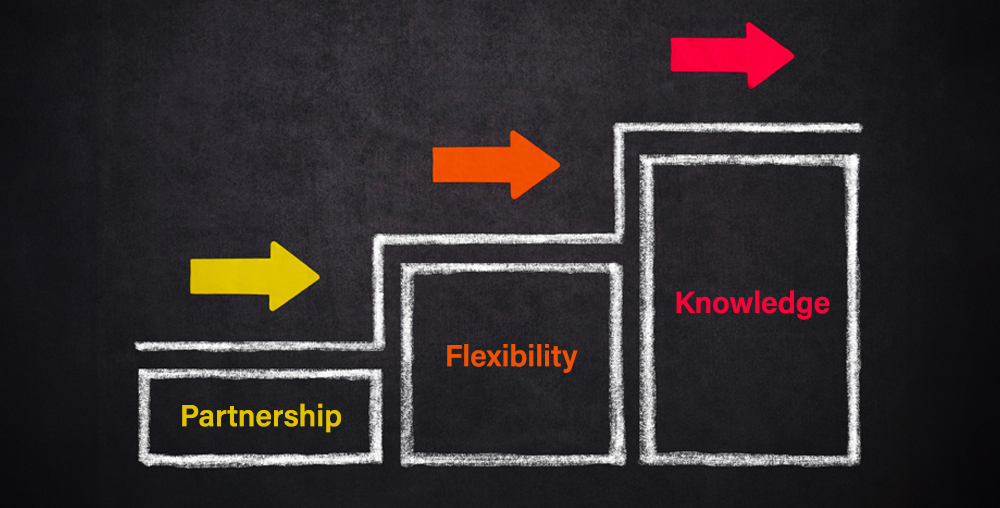
Influence is not a new skill. In fact, we tend to influence fairly instinctively. However, you can proactively increase your ability to be more influential within your organization. When you put structure around influence, you can do it more consistently, more deliberately, and as a result more effectively.
“Your reality is that your level of influence in any given moment is built on an ongoing basis.” Susan Finerty, author and CPED instructor.
Influence in organizations can be broken into two parts: what happens before the influence and what happens when you’re influencing. Influence expert, author, and Wisconsin School of Business Center for Professional & Executive Development Instructor Susan Finerty defines these two parts as “build proactively” and “in the moment”.
“There are things that you do every day that help you be described as influential,” Susan says.
Within build proactively, there are three key focus areas: partnerships, flexibility, and knowledge. Susan expands on both how to “build proactively” and improve your “in the moment” in her webinar “Influencing at the Top: Four Tips for Influencing Up in Financial Services.”
Forge Meaningful Partnership
“Partnerships are critical because without trust you can’t have influence,” Susan says. “Without people trusting you, they’re not going to trust your idea, your suggestion, your need, your solution, or your decision. Trust is a huge piece of it.”
Forging meaningful partnerships helps you build trust throughout your organization. It takes far less effort to influence a partner. The other benefit to partnerships is that it expands your network.
Maybe you need to influence someone you don’t know, but you have a partner who does have a relationship with that person. You can work with and through your partner to influence. You can gain perspective from your partner or your partner can be your ally or advocate.
“Partnerships, when you’re influencing directly, make it a much more efficient process,” she adds.
Work on building your partnerships every day.
Be Willing to Be Influenced
The second piece to proactively build your influence is to demonstrate a willingness to be influenced. You need flexibility and a balance of give and take.
“Influence is a strategic skill, not a conversation skill.” Susan Finerty.
The most influential people are those that are willing to be influenced by others, Susan says. People that are stubborn with their ideas and aren’t open to the ideas of others, aren’t influenced, will gradually lose their level of influence. However, those who are overly flexible and don’t take a stand also lose their influence.
It’s important to be very conscious of your level of flexibility. Every day you should be demonstrating flexibility and demonstrating balance, Susan says.
Broaden Your Perspective
The third piece to proactively build your influence is to see a problem and the solution from a broader perspective than just your own needs.
“The more knowledge you build the more you’re able to understand what you can influence, who you should be influencing, how you should be influencing, and when you should be influencing,” Susan says.
“Your weakest point of influence is when you can’t link your need or idea to something bigger than yourself.” Susan Finerty.
When you are influencing, you need to see what others see. You need to be curious. This is especially important when you have to influence up. The people you are influencing want to be seen and heard in order to be influenced by you, Susan points out. They want to know you’re thinking through the questions and demonstrating curiosity.
Remember, influence isn’t just about what you do in the moment. It’s about the groundwork you lay beforehand. By taking a proactive approach to building your influence you’re setting yourself up to be more successful in your influence conversations.
Continue to cultivate these skills and habits with programs like How to Influence Without Direct Authority, and become a more influential presence within your organization.